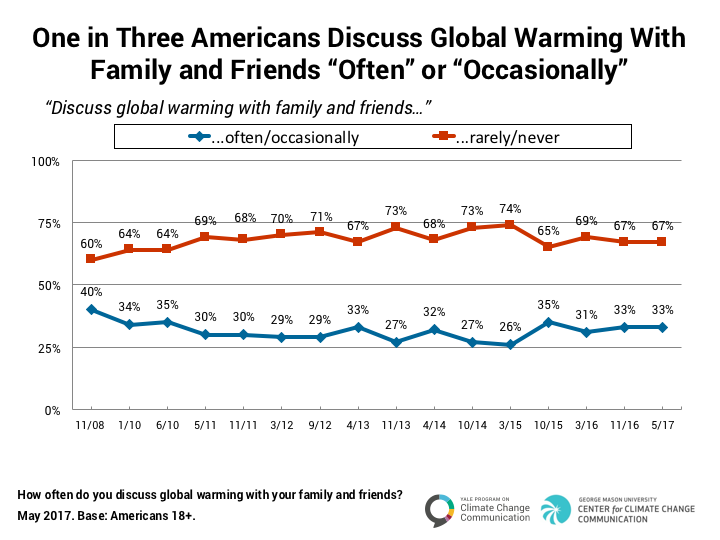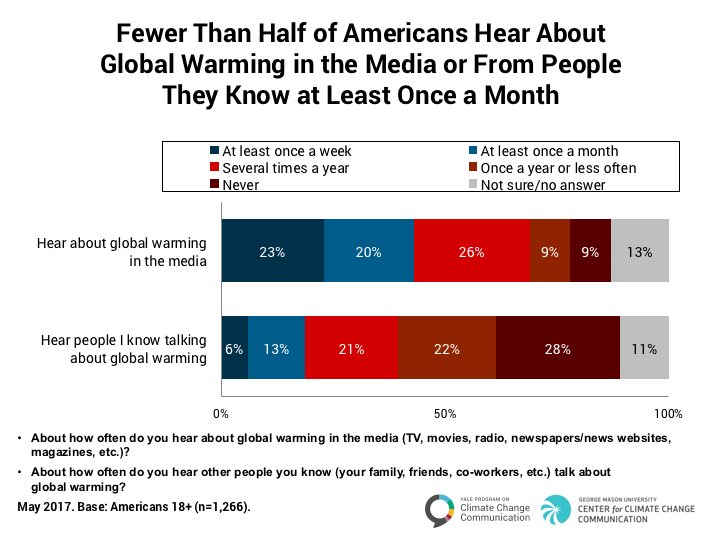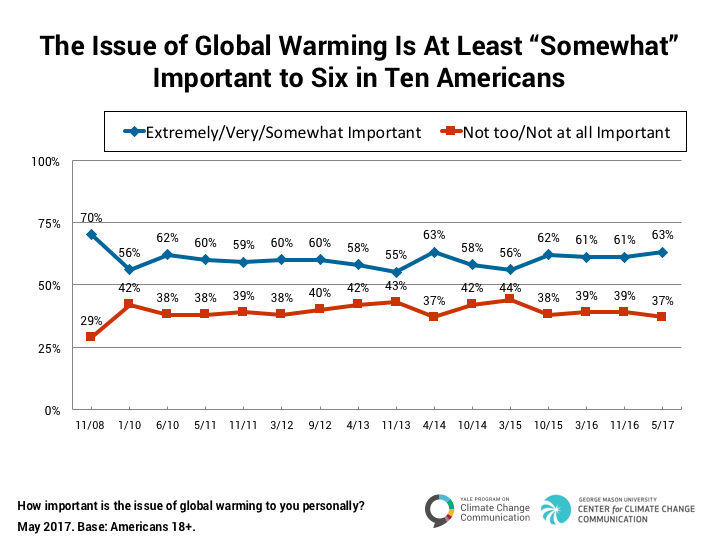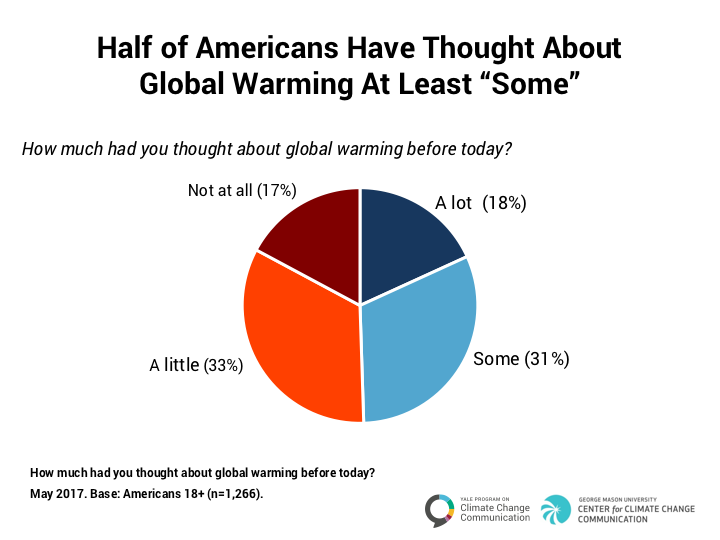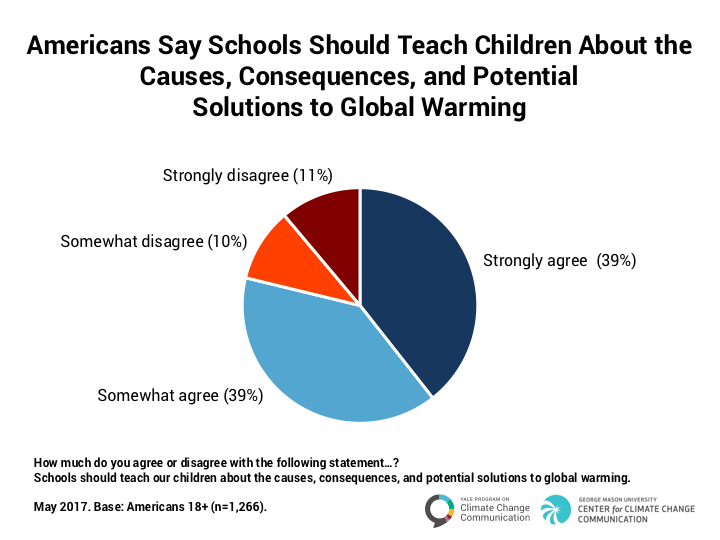Report · Jul 5, 2017
Climate Change in the American Mind: May 2017
By Anthony Leiserowitz, Edward Maibach, Connie Roser-Renouf, Seth Rosenthal and Matthew Cutler
Filed under: Beliefs & Attitudes
4. Personal and Social Engagement with Global Warming
4.1. Only one in three Americans discuss global warming with family and friends “often” or “occasionally.”
Thirty-three percent of Americans say they discuss global warming with family and friends at least occasionally, while most say they rarely or never discuss it (67%).
4.2. Fewer than half of Americans hear about global warming in the media or from people they know at least once a month.
Only about four in ten Americans (43%) hear about global warming in the media once a month or more frequently, compared with 35% who hear about it only several times a year or less, and an additional 9% who never hear about it.
Only one in five (19%) hear people they know talking about global warming once a month or more. In contrast, 42% hear people they know talking about it only several times a year or less, and more than one in four (28%) never hear people they know talk about global warming.
4.3. The issue of global warming is at least “somewhat” important to six in ten Americans.
About six in ten Americans (63%) say the issue of global warming is either “extremely” (10%), “very” (16%), or “somewhat” (38%) important to them personally. About four in ten (37%) say it is either “not too” (22%) or “not at all” (15%) important personally.
4.4. Half of Americans have thought about global warming at least “some.”
Half of Americans say they have thought about global warming before today either “a lot” (18%) or “some” (31%). The other half say they have thought about global warming just “a little” (33%) or “not at all” (17%). These numbers have remained relatively stable since we first conducted this survey in 2008 (see Data Tables).
4.5. Americans say schools should teach children about the causes, consequences, and potential solutions to global warming.
The Next Generation Science Standards for K-12 STEM (Science, Technology, Engineering and Mathematics) education in the U.S.The Next Generation Science Standards were developed by a collaboration of scientists and educators at the National Research Council of the National Academy of Sciences; the American Academy for the Advancement of Science; the National Teacher’s Association; 26 states; and Achieve (a non-profit organization). Released in 2013, the standards represent the most current, research-based method of educating K-12 students in STEM and preparing them for STEM careers. See: http://www.nextgenscience.org/ require that climate change be included in the curriculum, a mandate that is controversial in some parts of the country. Overall, however, a large majority of Americans support teaching about global warming in schools: By a large margin, Americans say that schools should teach children about the causes, consequences, and potential solutions to global warming (78% agree “strongly” or “somewhat” versus 21% who disagree “strongly” or “somewhat”).
